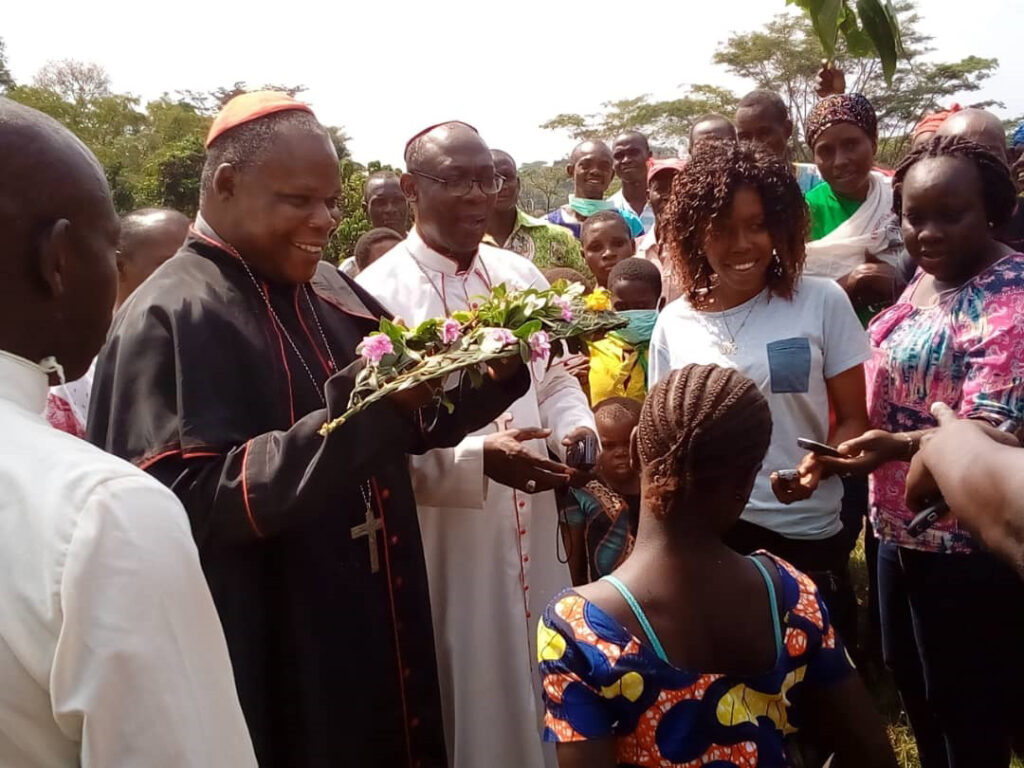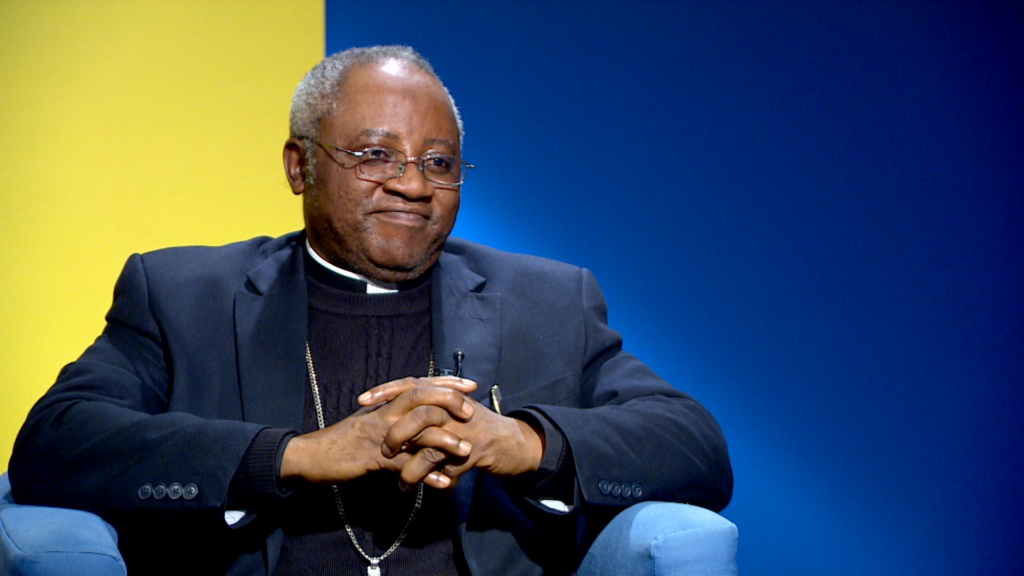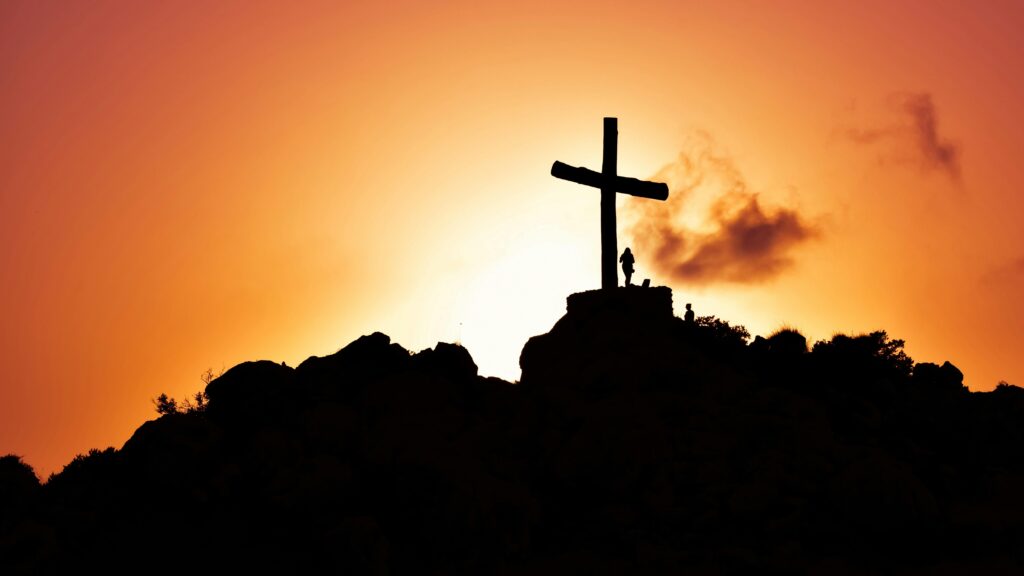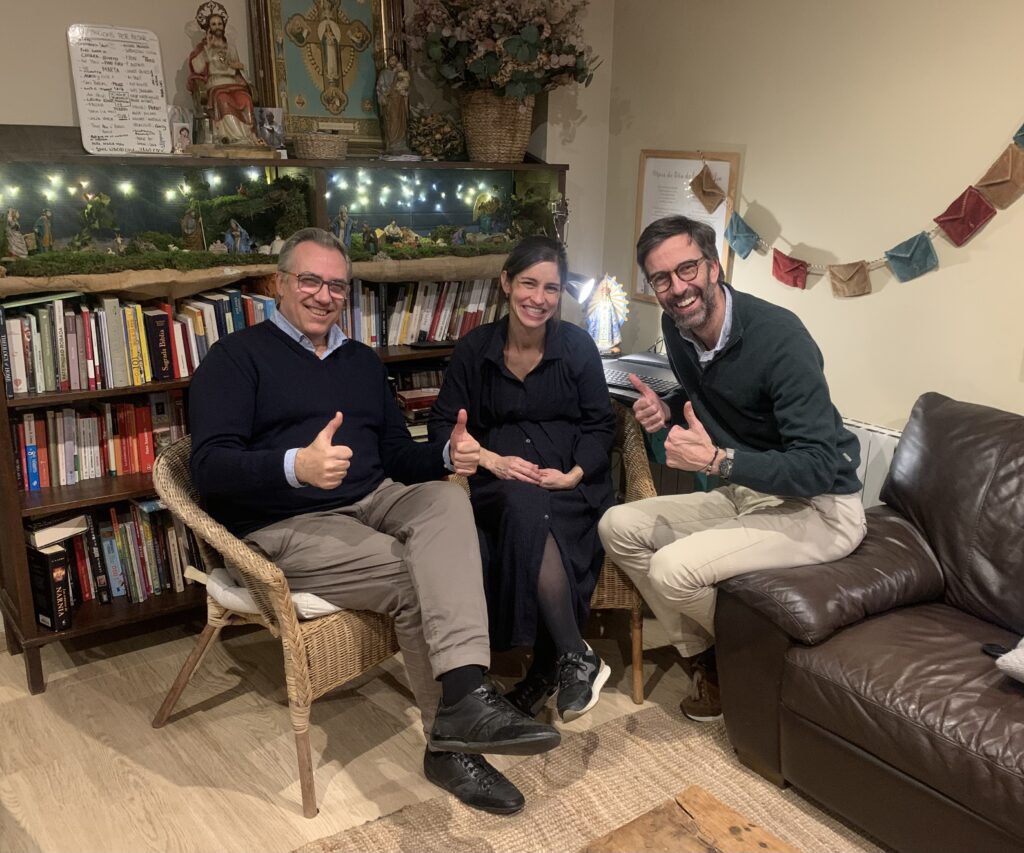“If men have forgotten you, God has not forgotten you!”
Cardinal of the Central African Republic

Cardinal Dieudonné Nzapalainga travels through his country marked by civil war, where some of the young people are finding it difficult to lay down their arms and return to school. Travelling to the “peripheries” so dear to Pope Francis, the Cardinal takes the pulse of an abandoned population. During his visit to the international headquarters of the Aid to the Church in Need (ACN) foundation, he talked about the situation in his country and the need to educate young people.
Do you think the Central African Republic has overcome the terrible years of civil war?
The current government is no longer under threat, the fear of a coup d’état that existed in 2020 is no longer an issue. But our society is full of terrible wounds and needs reconstruction.
How do you get a close look at the situation in your country?
I travel around the country to places where no officials are to be seen. The roads were bad before the Civil War, but now they are impracticable. There are groups of bandits on the roads that make traffic very difficult and can be dangerous, but I trust in my baraka (Arabic word for divine blessing) and so far it has not abandoned me. During my travels, I see entire villages, left to fend for themselves. These people feel that no one cares about them. They die like animals without even having a clinic. They have to be reminded that they are children of God. So I take off my cardinal’s robes, I make myself small, I go around the country and I tell them: “If men have forgotten you, God has not forgotten you”.
In a village, during the confirmation of a young adult called François, I was surprised to see the euphoria with which they celebrated. They explained to me that he was the village catechist. It was he who kept the faith alive in this community, which had not received a visit from a priest for a long time. And this despite the fact that the brave François had not even been confirmed.
How do you explain such neglect?
In defence of the government, it must be said that our country is almost as big as France and that it is difficult to control such a vast area. Moreover, there are still areas under rebel control.
I recently visited Ouadda, a small town in the north-east of the country. I was very well received by the population, who were delighted with my presence. The people were happy to see that they were not abandoned, and also because, during my stay, they did not have to observe the curfew imposed by the rebels. When I wanted to leave, a young rebel leader blocked my way and told me that I could not leave. That same night, the parishioners prayed for us. Even the mayor, pastors, and imams came to plead my cause. The next day, when I told the local leader that I wanted to leave, he first blocked me, but ten minutes later he said I could leave… Although I was relieved to be on my way, I called him to attention: I reminded him that he was supposed to be a leader, whose word was important and that he could not use it in any way. I was taken to his superiors and there he acted like a little boy who had just been caught red-handed. There are many such people here. They have no education, so they compensate by using brute force.
You insist a lot on the importance of education: why?
We have such a great youth in our country, so many young people! But during the years of instability, since 2013, they have not gone to school and education is still very poor. Teachers often don’t want to go to the peripheral regions because they are afraid of the rebels. Another problem is that they are poorly paid. The ones who are really well paid are in the military because they have Kalashnikovs, and it’s not convenient to bother someone with a gun. Teachers, on the other hand, only have chalk. So they often get paid late. For teachers who live far away from the big cities, they have to make long and dangerous journeys to get their salary, because there are no banks. I see some who have to spend two-thirds of what they earn on transport, usually by motorbike or motorbike taxi. And the journey can take up to two weeks, so they only teach for half the month.
And those are the tenured teachers who receive a salary from the state. Their numbers are grossly inadequate, so parents are recruited locally, as volunteers trained on the spot, to teach. The latter receive only what the parents of pupils are willing to offer them. This creates unfair disparities among the children, as parents who pay more expect their children to return with good grades in return.
We even have a lack of buildings. Many schools have been burnt down and classes are held under a mango tree. The class has to follow the direction of the sun, and if it’s too windy or raining, we simply can’t have classes. These are not normal conditions for learning.
Do you see a decline in educational standards as a result?
Of course, I do. I give some examples: to enter the minor seminary, only 20 out of 200 young people had the required level, in a major seminary, it was only 4 out of 23. I see many children who used to get grades of 13/20 in their school, but in a Catholic school, where there is no favouritism and no cronyism, they don’t get more than 4/20.
What can the Church do in a situation of this magnitude?
We are helping with our means. One of my priests is giving free high-level courses to help those who want to enter the seminary. Education is of the utmost importance, since, in the end, it is what determines the presence of seminarians, community leaders and professionals in our society, not forgetting the catechists. The latter are essential to keep the flame of faith alive in our villages.
The question of the education of young girls is of particular concern to us. In some villages, I have seen girls as young as eleven years old pregnant, victims of rape by armed youths. Because of this, they had no chance to study. This made me indignant. So I entrusted myself to Providence.
In my sermons, I spoke about this catastrophe and asked if there were people who could help me to get the girls out of these situations. And I was listened to. A Cameroonian donor helped us with everything from studies to accommodation. Thirty girls were sent to Cameroon. Not one of them has disappointed us. We have medical students, engineers… They are up to the task!
ACN has funded 175 projects in the Central African Republic over the past five years in nine different dioceses, including nearly 40 projects in the diocese of Bangui. During 2023, ACN has supported training, transport and refurbishment projects in the diocese.
Related

Thy will be done
Albert Cortina
17 April, 2025
35 min

Despite hardships, Christianity is growing “astronomically” in northern Nigeria
Ayuda a la Iglesia Necesitada
10 April, 2025
3 min

“Christianity, a Powerful Engine of Social Transformation”
Exaudi Staff
09 April, 2025
3 min

Let God be God
Albert Cortina
11 March, 2025
25 min
 (EN)
(EN)
 (ES)
(ES)
 (IT)
(IT)

